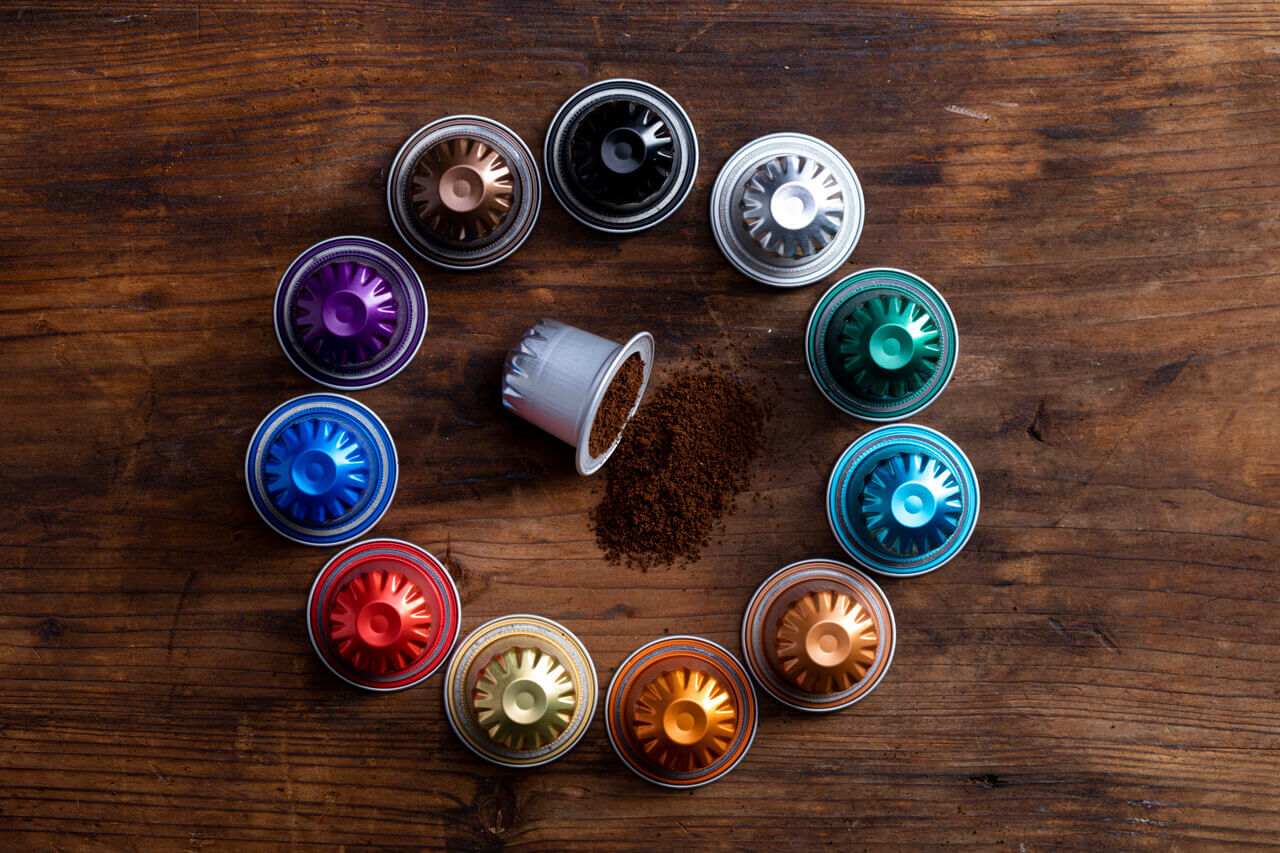Capsule Lid Sealing Quality: The Importance of Ease and Quality of Sealing

For enthusiasts, fresh coffee is a big deal. But why?
Coffee is at its best when it’s completely fresh from the farm. Well, you can’t roast it immediately after harvesting, but you know what we mean. There are important steps you can’t skip in preparing coffee beans for roasting.
You must remove the pulp, ferment, wash, dehull, dry, and dehull again before the beans are ready to be roasted. When this process is complete, you can roast the beans, grind, pack, and ship them to the consumer.
We’re interested in the last two steps, where coffee is packed and transported. When coffee is ground into fine particles, it is more exposed to oxygen. It undergoes chemical changes much more rapidly.
This is why storing whole beans is not a problem, but storing ground beans is.
In this article, we focus on the importance of excellent sealing, specifically for coffee capsules. By the time you get to the end, you will understand the role quality sealing plays in keeping your coffee fresh for your customers.
Why is coffee capsule sealing important?
Fresh coffee contains soluble flavors that give coffee its distinct characteristics when it is brewed. The more fresh coffee is, the stronger the flavors are.
Over time, the soluble flavors in coffee are expected to degrade naturally, causing coffee to become flat and stale. However, coffee capsule sealing slows down the process of flavor degradation by keeping oxygen out of the coffee capsules.
The rate at which oxygen leaks into a coffee capsule through the walls is known as the Oxygen Transmission Rate (OTR). It is a big factor to consider when selecting the right material for your coffee capsules.
When oxygen is allowed to mix with coffee grounds, it attacks the soluble flavors. It causes them to lose their complex and delicate flavors faster in a process known as oxidation. You know how iron rusts when it is oxidized? It’s the same thing, only instead of iron, it’s coffee.
It’s not just oxygen that coffee capsule lids keep out; they also keep other things like moisture, light, and odors from interacting with coffee grounds. Any of these things can also affect the taste of your coffee.
Even though sealing a coffee capsule helps keep your coffee fresh for longer, it is important to consider the material of the lid and the machine you use to seal the coffee capsules. A bad material or sealing machine can allow oxygen or moisture into the coffee capsule over time.
So, which material is best?
Capsule coffee sealing lid materials
There are three materials used to make coffee capsule seals:
- Aluminum
- Compostable materials
- Plastic
Let’s explore the benefits of each material.
Aluminum
Aluminum is the best material for making coffee capsules and sealing lids for a variety of reasons:
- It is infinitely recyclable. Aluminum can be recycled for as long as it is available. In fact, nearly 75% of all the aluminum in use today is recycled. The same thing applies to aluminum coffee capsules.
- It has a low OTR, lower than plastic. This is great because lower OTR means that coffee doesn’t get oxidized and stays fresh for longer.
- It doesn’t leave an odor in the coffee. Aluminum keeps coffee fresh longer without affecting the flavor of coffee, unlike plastic. Plastic can leave a weird taste in coffee when it stays there for a while.
- It is food safe. Unlike plastic, aluminum does not leak microplastics or other harmful particles into the coffee.
- It allows for a wider sealing area. Unlike other materials, aluminum allows manufacturers to create a wider sealing area that is strong. A wider sealing area enables machines to position the lid and seal the capsule faster, locking in the coffee flavor.
- It is easier to transport. When transporting coffee capsules, stacking them on top of each other to utilize space is inevitable. Thick aluminum walls prevent the capsules from easily breaking.
Plastic materials
Even though plastic is the least suited for making coffee capsules and sealing lids, it is the most popular. Aluminum foil is used to make most sealing lids.
Despite being touted as being food safe, some studies have shown that plastic coffee capsules can have adverse effects on our health. They have also shown that plastic can cause health issues like hormonal imbalance and fertility problems in the long run.
In addition to health issues, plastic coffee capsules contribute greatly to environmental pollution. 123 million coffee capsules end up in landfills daily. Considering that plastic coffee capsules account for over 80% of the total figure, this is a major environmental problem.
Compostable materials
A typical compostable coffee capsule is made in a way that allows it to degrade in a few months. Rather than recycle it like aluminum or plastic, it can be disposed of with regular compost material.
Even though it is friendlier to the environment than plastic, it is still not as good as coffee regarding durability. Additionally, the paper seal isn’t as strong as the aluminum foil and can easily break during transportation even though it leaves fresh-tasting coffee.
Conclusion
Quality coffee capsule sealing undoubtedly greatly impacts the quality of the end product that your customers experience. You should spend time finding the right combination of materials you need to use to keep your costs manageable while giving your customers the best product.
However, it is quite clear that aluminum sealing lids have benefits that far outweigh those of the other materials. In your next conversation with your capsule manufacturer, ask about aluminum and how you can use it to seal your coffee capsules.
